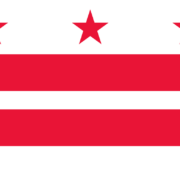Navigating Wage Transparency Regulations in New York State
Introduction
New York State has implemented comprehensive wage transparency regulations to promote fair pay practices and reduce wage disparities. These regulations, which apply to various jurisdictions including New York City, Ithaca, Westchester County, Albany County, and the state as a whole, aim to ensure that employees and job seekers have access to vital compensation information. As businesses adapt to these new regulations, understanding the implications of each jurisdiction’s requirements and how to comply is crucial.
Understanding Wage Transparency Regulations in New York State
New York State
- Statewide Pay Transparency Law: Effective September 17, 2023, New York State requires businesses with four or more employees to provide job descriptions and list compensation ranges for job opportunities, promotions, and transfers [1]. Employers must also clearly state if a position is commission-based and are prohibited from retaliating against employees or applicants who request this information [1].
New York City
- Local Law 32: Effective November 1, 2022, New York City mandates that employers with four or more employees include a good faith salary range in job advertisements [2]. This law aims to provide transparency and reduce wage disparities by ensuring that job seekers have access to compensation information upfront.
Ithaca
- Local Pay Transparency Ordinance: Effective September 1, 2022, Ithaca requires employers with four or more employees to include salary ranges in job postings [2]. This ordinance aligns with the city’s commitment to promoting fair pay practices and reducing gender and racial wage gaps.
Westchester County
- Local Law 192: Effective November 6, 2022, Westchester County mandates that employers with four or more employees disclose salary ranges in job advertisements [2]. This law is part of the county’s broader efforts to ensure wage transparency and equity.
Albany County
- Local Pay Transparency Law: Effective December 1, 2022, Albany County requires employers with four or more employees to include salary ranges in job postings [2]. This law supports the county’s goal of promoting fair compensation practices and reducing wage disparities.
Compliance and Violations
Employers in New York State must comply with both state and local wage transparency regulations. Violations of these laws can result in charges and penalties:
- Statewide Law: Employers who violate New York State’s pay transparency law may face civil penalties not to exceed $1,000 for the first violation, $2,000 for the second violation, and $3,000 for the third and subsequent violations [2].
- Local Laws: Employers in New York City, Ithaca, Westchester County, and Albany County are subject to local enforcement and penalties for non-compliance. These jurisdictions have their own mechanisms for investigating and prosecuting violations, which can include fines and other penalties [1].
Employment and the Role of Third-Party Audits
Third-party audits are critical for ensuring compliance with wage transparency regulations across New York State. These audits provide an independent assessment of wage practices, helping to identify and address pay disparities. Key benefits of third-party audits include:
- Ensuring Fairness and Non-Discrimination: Audits help verify that pay practices are fair and non-discriminatory, aligning with the principles of equal pay for equal work.
- Transparency and Accountability: Independent audits ensure that wage practices are transparent and accountable, fostering trust among employees and compliance with the law’s requirements.
- Continuous Monitoring: Regular audits support continuous monitoring of pay practices, ensuring ongoing compliance and addressing any emerging disparities.
- Legal Compliance: Audits help generate and validate the technical documentation required by the law, ensuring that all necessary information is accurately recorded and maintained.
How Canopy Can Help
Canopy offers comprehensive solutions to help businesses comply with wage transparency regulations and promote fair pay practices:
- Compliance Framework: Canopy provides a robust framework to help businesses develop and implement policies that comply with wage transparency laws. This includes guidelines for regular reviews and updates to ensure ongoing compliance.
- Wage Analysis Tools: Canopy offers tools to analyze wage data and identify potential discrepancies. These tools help businesses ensure that their pay practices are fair and aligned with regulatory requirements.
- Third-Party Audits: Canopy facilitates third-party audits to provide an independent assessment of wage practices. These audits help verify compliance with wage transparency laws, ensuring fairness, transparency, and accountability.
- Training Programs: Canopy provides training programs to educate employees and managers about the provisions of wage transparency laws and the importance of fair pay practices. This helps create a culture of fairness and compliance within the organization.
- Advisory: Aspen Analytics advisors and its partners in the employment law firms can assist businesses in navigating the complexities of wage transparency laws, providing guidance on compliance and defending against potential claims.
- Continuous Monitoring: Canopy’s solutions include continuous monitoring of pay practices to detect and address any emerging discrepancies. This proactive approach ensures that businesses remain compliant with wage transparency laws and other evolving regulations.
Conclusion
New York State’s wage transparency regulations represent a significant step towards achieving pay equity in the workplace. As businesses strive to comply with these regulations, Canopy’s comprehensive solutions provide the tools and support needed to ensure fair and transparent pay practices. By partnering with Canopy, businesses can not only comply with the law but also foster a culture of equity and fairness.
References










Leave a Reply
Want to join the discussion?Feel free to contribute!